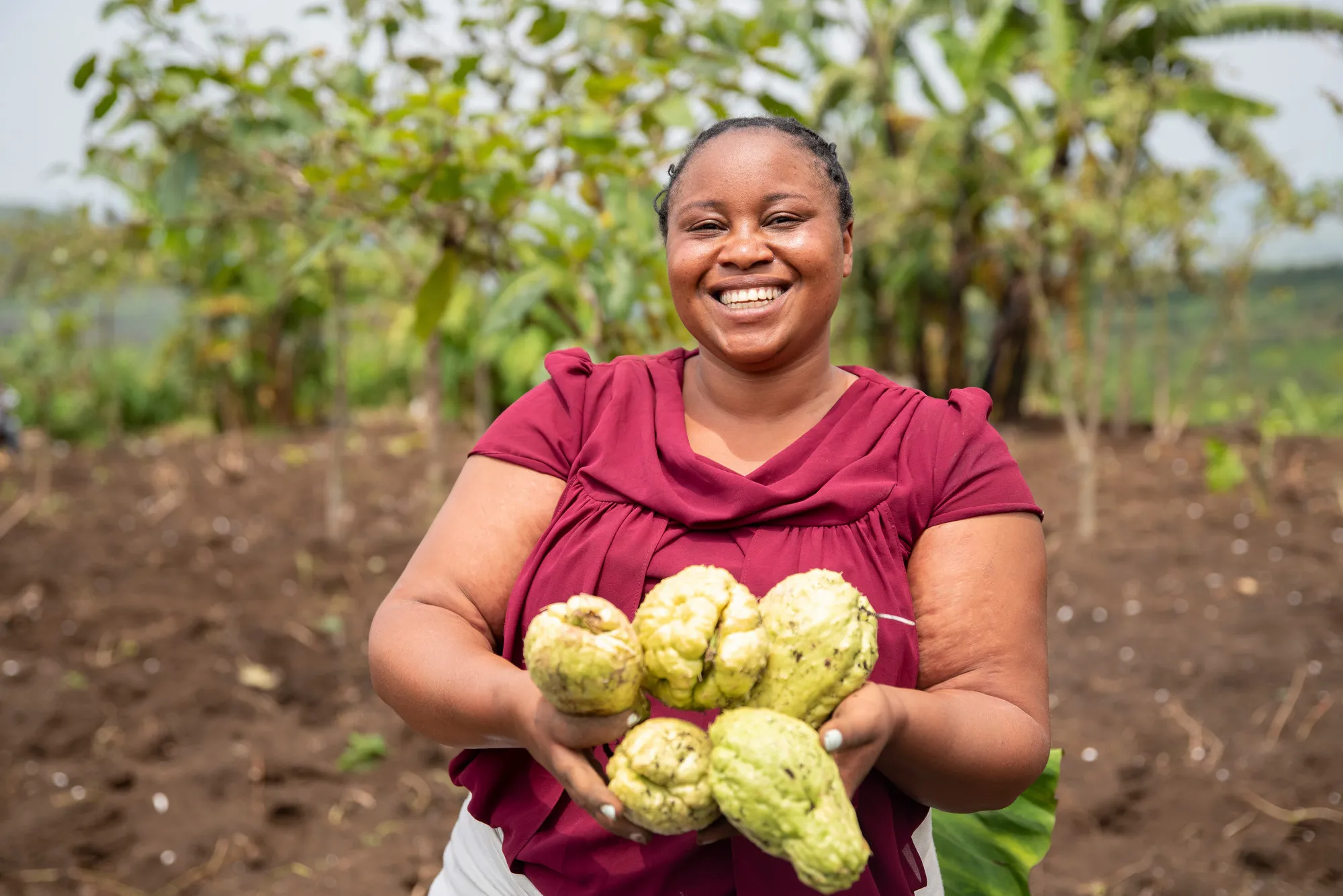In 2019, Isabelle joined an AVEC, a savings group that allows members to pool resources, take out loans, and mutually benefit from the interest collected. AVECs also connect members with job training and support through partnerships with other organizations.
“These groups help in the fight against food insecurity because the training the women receive helps them engage in farming and animal husbandry,” says Pacifique Murabaze, Technical Officer at Amis de Justice (ADJ), a project partner.
ADJ connected Isabelle with the Mawe Tatu Project, which works with women to improve their socio-economic status, which in turn improves households and communities. “The program supports project participants with not only training on bookkeeping, savings, and best practices but also provides seeds, farm implements, and monetary support. So far, in the Commune of Nyiragongo, 16,525 are involved in groups and 50% of them are involved in agriculture,” Pacifique says.
Mawe Tatu has helped Isabelle’s business thrive. “Farming has helped my family and me because when I work on the farm, I can sell the produce and get money to pay for things. This has enabled me to depend on myself. It has also enabled me to engage in other projects and get money to buy more land to farm.”
Isabelle started with two acres but through savings from selling produce, she now has five acres and employs five permanent workers. During the growing and harvesting season, she’s able to double her staff to 10 farmhands.
CARE International in DRC has reached 27,000 women through Mawe Tatu and aims to reach even more in its ongoing efforts to address the country’s serious food security issues. “Mawe Tatu believes that investing more in supporting women to develop value chains in agriculture would be a good thing to cover not only the needs in their communities but also beyond their provinces, to their country. That’s why we think that if we can introduce agricultural funds in the AVECs, it will allow the women who work in agriculture to improve their businesses and to cover their needs as they fight against famine in our community,” says Dr. Caroline Kasongo, Mawe Tatu Project Manager.
“Thanks to the collaboration with the AVECs, my children will study well and not sleep hungry. I call on women to be involved in farming as it not only helps the family but also enables us to be self-dependent,” says Isabella.
Mawe Tatu is implemented by CARE International in DRC in collaboration with partner organizations, COMEN, Guichet d’Economie Locale (GEL), Amis de Justice (ADJ), and ZMQ Development.

